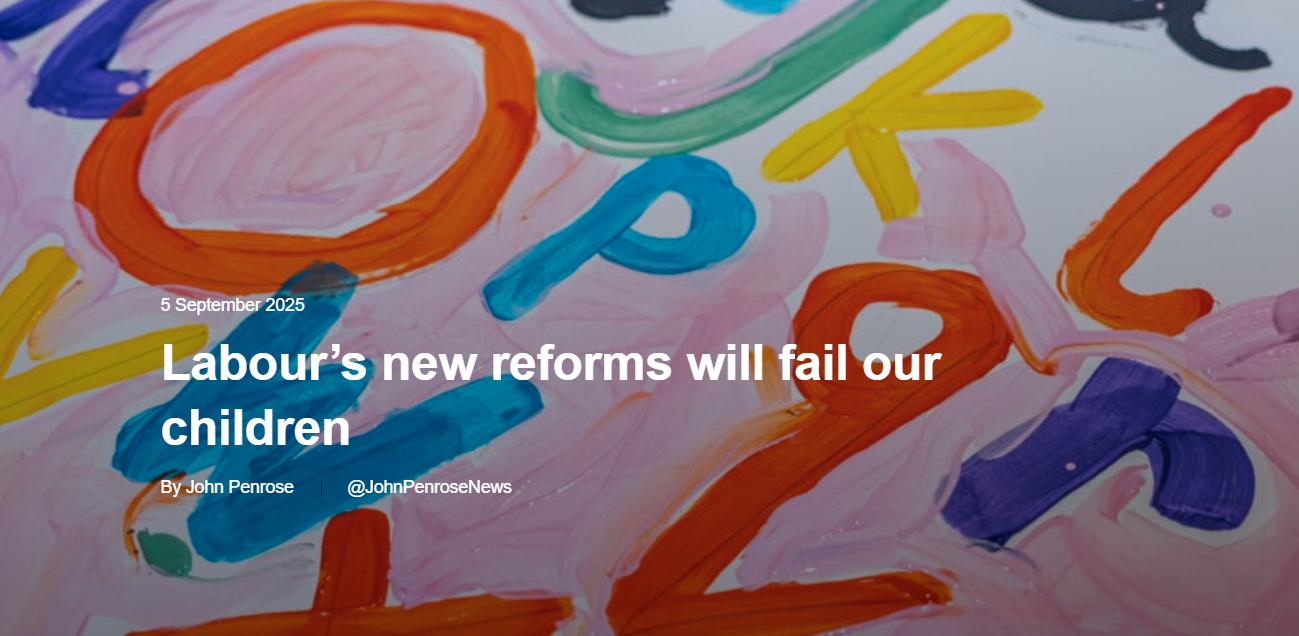Nursery places that are rarer than hens teeth, childcare which costs more than tickets for an Oasis reunion gig, and fleets of nursery providers complaining they’re teetering on the edge of bankruptcy. Everyone agrees that Britain’s childcare services could and should level up opportunities, break glass ceilings and reduce gender pay gaps, but they are less affordable than almost every other G20 nation instead. So the Government’s decision to kick off this week’s big autumn reset alongside the launch of a major childcare reform ought to have been a big deal.

Except it wasn’t. Ministers trumpeted £7,500 of taxpayer cash for half a million hardworking families, but without any reforms to fix underlying problems in exchange for the extra money. There was nothing to make more childcare available outside normal office hours for parents who work shifts, or who need help during school holidays, or who want a mix of formal and informal childcare instead of whatever the Government decides they should have. Nor was there much to help struggling childcare providers attract and retain more staff either.
The fundamental problem is gold plating. Successive governments have seized on childcare as an engine for improving the life chances of children in disadvantaged families, which is fair enough. The quest to ensure everyone has a safe and enriching childhood is a holy grail because it reduces inequalities, cuts generational poverty and saves taxpayers millions as better-equipped citizens need less help in their journey through life. Prevention is better than cure or, as we like to say at the Centre for Small State Conservatives, ‘Bigger Citizens Need Smaller Governments’.
Delivering this kind of help for children in seriously disadvantaged families is difficult and expensive, which is why nurseries have tough rules mandating minimum numbers of staff per child, minimum qualifications and much more.
But most families aren’t seriously disadvantaged, of course. They provide a safe and loving upbringing for their children just fine, thank you very much. They need safe, convenient childcare they can trust, so they don’t have to worry when they drop the kids off on their way to start their shift, and their children are smiling when they pick them up again later. Not complicated, gold-plated, inflexible services that solve problems their family hasn’t got, at a price they can’t afford.
How do we reform childcare so it caters to what most families want and need, without abandoning that small-but-critical cohort of disadvantaged households that need extra help?
The first step would be to sweep away all those complicated rules and regulations and replace them with a simple, cheap, new standards scheme, still inspected by Ofsted, which ensures all professional childcare settings are safe, and that any which include specialist support for disadvantaged families have to meet higher educational standards on top.
Then we should combine all the taxpayer cash which the government is already spending into a single, simple family child tax allowance for all parents with a child under 11, for them to spend as they want. Professional childcare providers would be free to set the times, types and prices of the services they offer, and working parents would use the money from the new tax allowance to pay for them directly. If parents prefer to provide care themselves, or with help from relatives, they will be able to spend the money from the new tax allowance on other young family costs instead. Parents with multiple children under 11 would get larger allowances, while the funding and commissioning of those vital early years interventions for disadvantaged families wouldn’t change.
The transformation would be prompt and profound. Childcare providers would be able to offer more care at different times of day, and on different days of the week, than today’s inflexible and mainly school hours services. They’d be able to offer a wider range of cheaper care, as well as specialist support for disadvantaged families if they wanted. Parents would suddenly find it was miles easier and more affordable to work a few extra hours overtime, or to apply for promotion, or to move to a better-paid job. Life chances would improve, gender pay gaps would get smaller and glass ceilings would shatter. If ministers had brought in these kinds of reforms this week, instead of just ladling out more money from taxpayers to subsidise a broken system, the Government’s reset would have had a much stronger start.
If you like this idea, you’ll find more details, soundbites and rebuttals about it under Affordable Childcare in the Policy Thumbnail section of our website
This article is the latest in a fortnightly series of policy proposals for CapX from John Penrose and the Centre for Small State Conservatives.

Leave a Reply